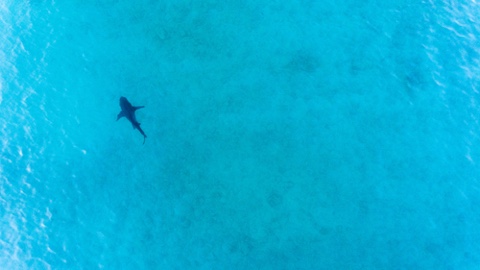
Westpac Little Ripper Lifesaver has collaborated with the University of Technology Sydney (UTS) to develop the first autonomous shark detecting drone – ‘Shark Spotter’.
“The automated system for detection and identification of sharks in particular, and marine life/objects more generally, was developed using cutting edge deep neural networks and image processing techniques,” said Professor Michael Blumenstein, head of the School of Software in the Faculty of Engineering and IT. “The system efficiently distinguishes and identifies sharks from other targets by processing video feeds that are dynamic, as well as images, where objects are static. The system will give an overhead warning to swimmers/surfers when a shark or a potential risk is detected, using an on-board megaphone attached to the drones. This cutting-edge AI system developed by UTS will create a positive impact for the public, making beach recreation much safer.”
Deep learning algorithms and image processing techniques examine live video feeds in real time to detect the presence of sharks with 90 percent accuracy. The drone is capable of distinguishing between them and other marine life such as dolphins, rays and whales – and can also distinguish surfers, swimmers, boats, and other objects.
“Sharkspotter uses image processing techniques, state-of-the-art sensors and software, and applies deep learning neural networks for object detection and classification,” said Nabin Sharma, Research Associate, School of Software at UTS.
“This system will help make beach recreation much safer and is a major milestone in addressing shark attacks with very real ability to save a life,” said Mr Eddie Bennet, Chief Executive Officer, Westpac Little Ripper Lifesaver.
